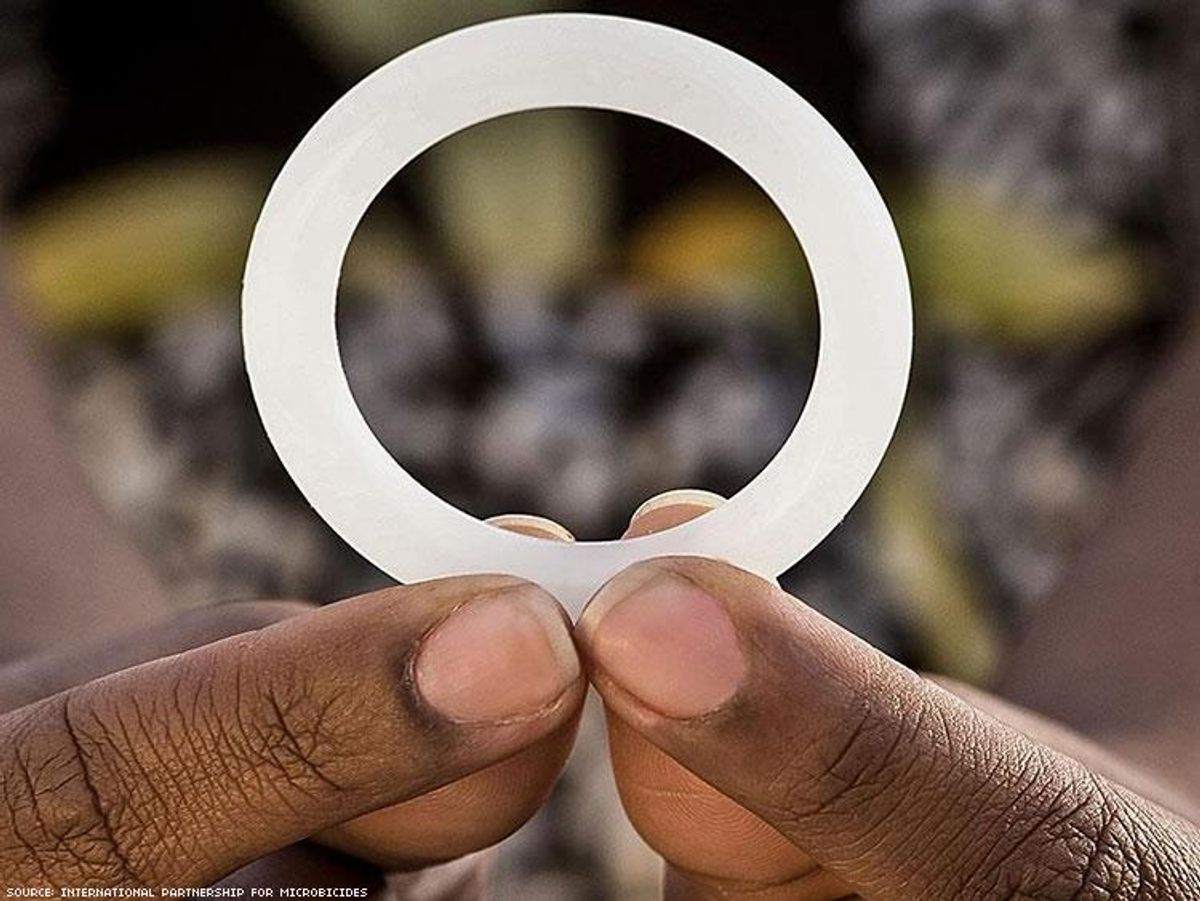Prevention
Innovative Vaginal Ring Is a New HIV Prevention Method for Women

The U.S. is spending millions of dollars to develop a vaginal ring designed to help prevent HIV.
October 05 2017 1:53 AM EST
By continuing to use our site, you agree to our Privacy Policy and Terms of Use.

The U.S. is spending millions of dollars to develop a vaginal ring designed to help prevent HIV.
The International Partnership for Microbicides (IPM) received an award from the United States Agency for International Development (USAID) to support the ongoing research of an HIV-prevention device for women. Combined with previous awards, this new grant (to be distributed over the next 5 years) brings IPM’s total funding from USAID to $91 million.
The specific goal of the award is to accelerate the potential rollout of its monthly vaginal ring — a device made of a flexible silicone material which contains dapivirine, a non-nucleoside reverse transcriptase inhibitor that blocks HIV’s ability to replicate inside of a healthy cell. The ring releases the dapivirine over the course of 1 month, offering a discreet and long-acting HIV prevention method for women — who insert and replace the device themselves.
The previous phase 3 clinical trials done on the ring (ASPIRE and The Ring Study) looked at the long-term safety and efficacy of the device in more than 4,500 women in Malawi, South Africa, Uganda and Zimbabwe. Data was also included from 35 supporting clinical studies. The ring showed to be both safe and effective in preventing HIV transmission among women ages 18–45, and reduced women’s risk of acquiring HIV by about 30 percent overall (higher levels of protection were seen in women 21 and older who used the ring more regularly).
“This would be the first new product for women for the prevention of HIV,” said Sharon Hillier PhD, principle investigator of the Microbicide Trials Network (MTN), and the director of reproductive infectious disease research in the Department of Obstetrics, Gynecology and Reproductive Sciences at the University of Pittsburgh School of Medicine.
The new funding will also allow IPM to accelerate the development of a 3-month dapivirine ring, which offers women even greater convenience, as well as reduces the product’s annual cost.
A more recent study (MTN-023/IPM 030) was designed to provide necessary information about safety and tolerability that is needed to approve the ring and include girls under age 18. “If the ring is approved for women older than age 18, it’s imperative that we have the data in hand to show that the ring is safe to use in younger women as well,” Hillier said.
In July, IPM submitted the product for review to the European Medicines Agency, and is currently working on submitting applications to the South African Health Products Regulatory Authority, the U.S. Food and Drug Administration, and regulatory authorities in other African countries. If approved, the dapivirine ring would be the first biomedical HIV-prevention product exclusively for women.